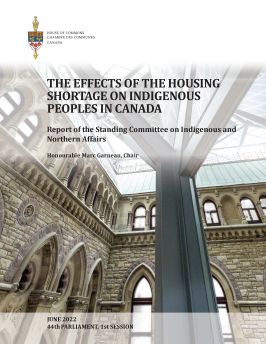The effects of the housing shortage on Indigenous Peoples in Canada
This report from the House of Commons Standing Committee on Indigenous and Northern Affairs analyzes the housing crisis facing Indigenous Peoples in Canada, including its physical and mental health impacts. The report presents 20 recommendations to address systemic inequities and support long-term, sustainable and self-determined housing solutions.




